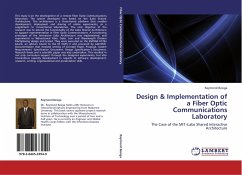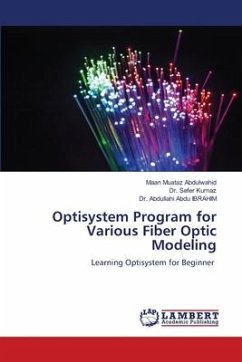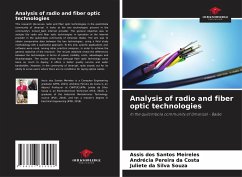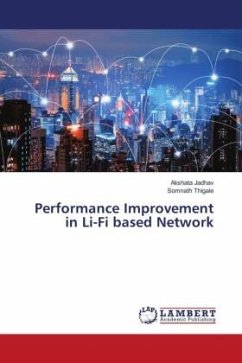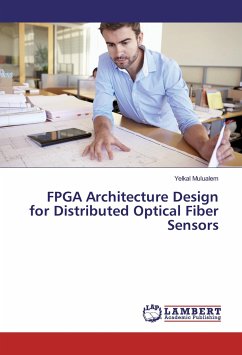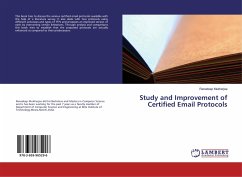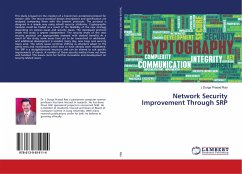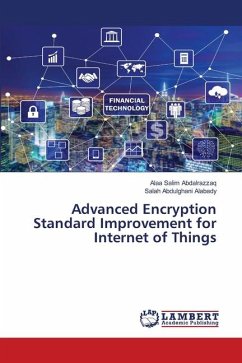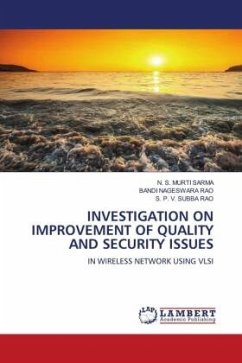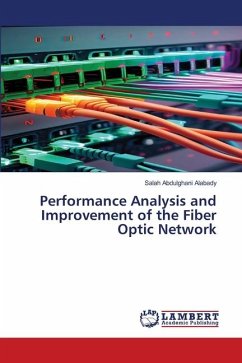
Performance Analysis and Improvement of the Fiber Optic Network
Versandkostenfrei!
Versandfertig in 6-10 Tagen
40,99 €
inkl. MwSt.

PAYBACK Punkte
20 °P sammeln!
In contrast to coaxial cables, fiber optic cables are used in Local Area Networks are more difficult to implement. The impediment is that low-perturbation bi-directional taps, which efficiently couple optical signals into and out of the main optical fiber trunk, do not exist to the same extent as coaxial cable taps. One way of achieving access to an optical bus is through an active coupler. This is a transceiver, which is a transmitter and receiver connected in a cascade. The quality of digital communications, whether at radio or optical frequencies, depends primarily on the Bit Error Rate. Re...
In contrast to coaxial cables, fiber optic cables are used in Local Area Networks are more difficult to implement. The impediment is that low-perturbation bi-directional taps, which efficiently couple optical signals into and out of the main optical fiber trunk, do not exist to the same extent as coaxial cable taps. One way of achieving access to an optical bus is through an active coupler. This is a transceiver, which is a transmitter and receiver connected in a cascade. The quality of digital communications, whether at radio or optical frequencies, depends primarily on the Bit Error Rate. Reducing the BER improves the communication system's behavior. At optical frequencies, the digital signal is subjected to various types of noise that tend to degrade the BER. This thesis describes the dependence of BER on noise and how these effects can be encountered by using longer wavelengths at different bit rates. Also, this thesis investigates the dependence of Bit Error Rate and threshold of the transceiver on the wavelength of the modulating signal. The results obtained indicate that using longer wavelength transceivers improves the BER and reduces the transmitted power requirement.





